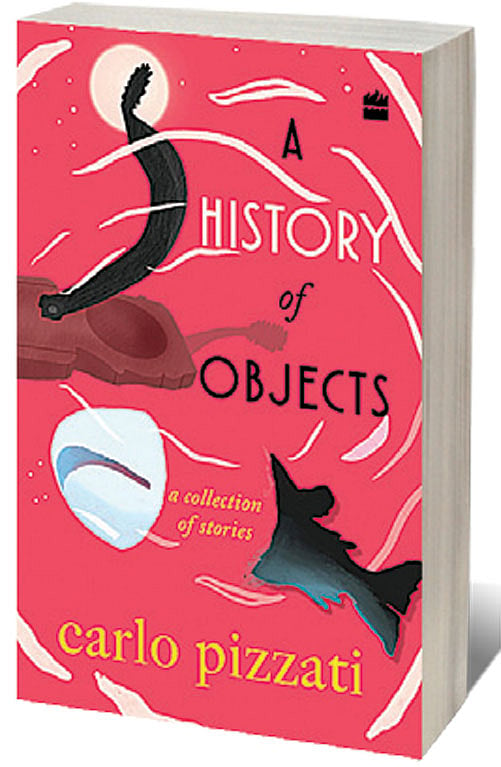Life Is Everything

AMERICAN POET AND short story writer Raymond Carver had once said, “It’s possible, in a poem or short story, to write about commonplace things and objects using commonplace but precise language, and to endow those things—a chair, a window curtain, a fork, a stone, a woman’s earring—with immense, even startling power.”
An observation that is borne out well by Carlo Pizzati in A History of Objects: A Collection of Stories. Indeed, just about every conceivable type of object exists within the pages of this slim book. There are toys here, and works of art; pieces of clothing; electronic equipment; furniture. Even—so appropriate, given the times we live in—a mask and a bottle of hand sanitiser.
All of them, in some way or the other, play an important part in the story to which they lend their name. Some, like the coconut scraper, the splint, and the smartphone, are the very focus of the story. Others (and these, in fact, are in the majority) appear only briefly in the story: one sentence or two, at the most a paragraph—but in that brief mention, those few sentences, they cement their position in the story. As something that could change lives.
There is the bottle of hand sanitiser, for instance, which upturns the power equation between a moneyed family and its driver. Or the teddy bear, mute witness to a momentous encounter, a turning point in a young woman’s life. The bench, at a literature festival, that sparks off a tense encounter, or the VHS tape, not important in itself, but the case of which is used to hide something potentially lethal.
Rule Americana
16 Jan 2026 - Vol 04 | Issue 54
Living with Trump's Imperium
Each story, no more than ten pages long (most are shorter), is named for an object, although how and where that object will appear within the story cannot be predicted, just as the story itself cannot be predicted. Pizzati traverses the world; switches perspectives; speaks now as a man,
now as a woman; is often witty but manages, too, to produce tales that are sometimes both disturbing as well as poignant and insightful.
Beyond the fact that they are all about objects, the insight these stories offer is possibly their most visible hallmark. In subtle ways, each story here offers something by way of a glimpse into human nature. The need of a teenager, painfully aware of her own poverty compared to the wealth of her luxury-loving friends, to somehow match them in ‘The Sweater’. Or the mad race to garner social media engagement by an Instagram-obsessed couple in ‘The Smartphone’. The shock to the sense of superiority, and the resultant rush to redeem it, in ‘The Hand Sanitizer’. Or the many nuances of lost love that are revealed through ‘The Slippers, The Shoes’, and ‘The Jade Stone’.
More often than not, Pizzati uses wit to shine the light on an object. Many of these stories have a quirky twist to them; ‘The Splint’, for example, about a man who is convinced he has been given another chance at life—all because of a splint on a broken finger. Or ‘The Diaper’, where, in the midst of changing diapers, a man decides to turn vegetarian. None of these witty stories are the laugh-at-every-line type; the humour, often black (or at least charcoal), comes in briefly but is impactful. One sudden twist at the end of a story, and the story itself acquires a whole new dimension.
A History of Objects is delightful and quirky, poignant and thought-provoking, all at the same time. These are thoroughly entertaining, deeply satisfying stories, an exploration of the world of inanimate objects. In a literature that tends to place a lot of emphasis on characters and their development, Pizzati’s stories are a refreshing step to the side. An oblique, out-of-the-box look at objects rather than people.

